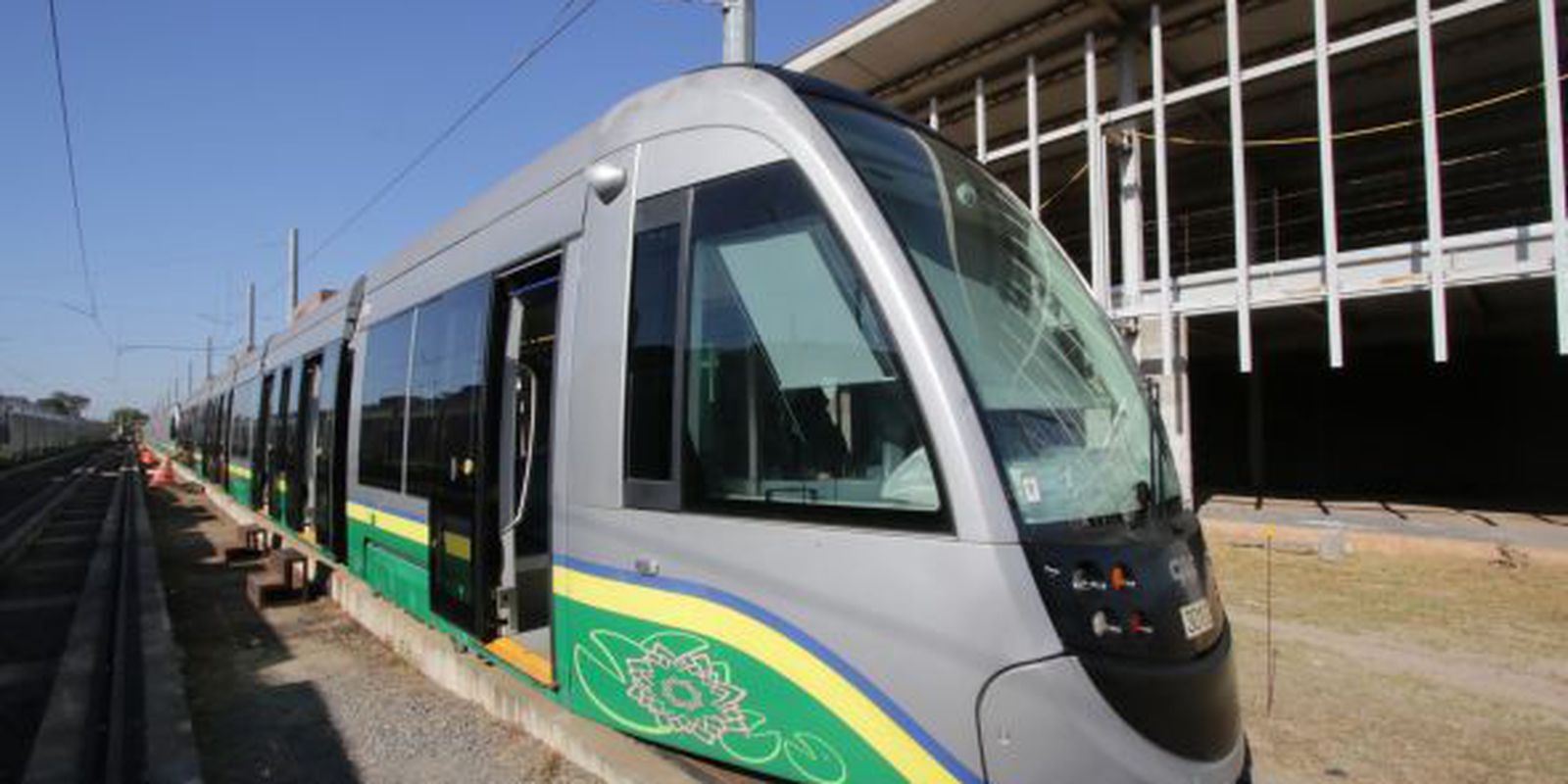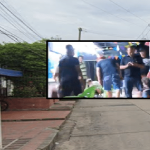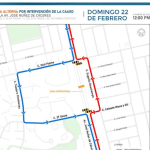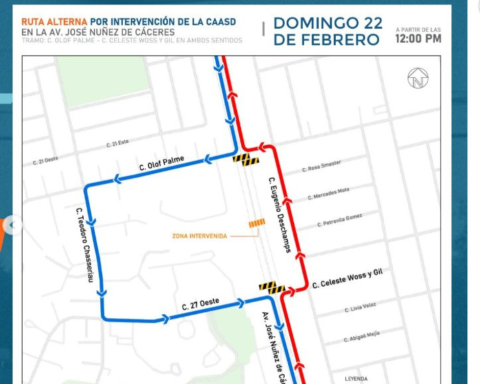Hired by the government of Mato Grosso to build the necessary infrastructure for the operation of the future rapid transport system by bus (BRT) that will connect the capital Cuiabá to the neighboring city, Várzea Grande, the Consórcio PN Príncipe started, this week, to remove the rails that will give way to a new road corridor.
The rails are the result of an unsuccessful project that envisaged connecting Cuiabá and Várzea Grande through another system, the Light Rail Vehicle (VLT). The work started and should have been completed before the opening of the 2014 World Cup, but although it consumed around R$ 1 billion from public coffers, it was never completed.
Due to the delay and, mainly, the complaints of irregularities in the project, the government of Mato Grosso decided to terminate the contract for the construction of the VLT in 2017. Three years later, with the works abandoned, the governor Mauro Mendes decided to dismantle part of the newly built structure. -Built and replace the original project with another, which provides for the implementation of the BRT.
Although almost 80% of the initial project, the VLT, has been executed, the state government claims that it will spend less public money dismantling part of the already installed infrastructure and building in its place the works that the BRT requires than if it opted to repair the damage. caused by the weather and conclude what is missing for the VLT to be able to operate.
The government of Mato Grosso also argues that the BRT operation is less expensive than the VLT, which will allow the operator to charge users a “more affordable rate”. Still according to the state government, the bus system can be more easily expanded to serve other regions. In addition, he argues, the road corridor that will be opened will be able to be used by other buses, guaranteeing the improvement of urban mobility.
The state government’s decision was not well received by the city of Cuiabá, which called the Union Court of Accounts (TCU) and the state Court of Accounts (TCE-MT) to try to prevent the construction of the BRT and ensure the conclusion of the VLT.
The TCE-MT rejected the City Hall’s request, but the TCU accepted it, determining the suspension of the works that were being carried out to change the public transport systems. However, on December 20 of last year, Minister Dias Toffoli, of the Federal Supreme Court (STF), decided that there were no reasons for the TCU to act in the process, since the project has not received federal public funds since 2017, when the The contract with the VLT Consortium was terminated and the state government subsequently settled the financing debts contracted with Caixa Econômica.
Despite this, the city of Cuiabá continues to criticize the replacement of the transport mode. Members of the municipal executive say that the project “does not have any technical consistency” and presented a complaint to the state Public Ministry about alleged irregularities in the bidding – it is worth remembering that, in 2017, that is, three years after starting the works, the former governor Silval Barbosa was investigated and admitted to the Federal Public Prosecutor’s Office (MPF) that he had received around BRL 18 million from the consortium previously selected to install the VLT.
“There is no common sense in saying that the BRT, which is starting from scratch, is cheaper than the VLT, which already had [mais de] 70% of the works carried out and a good part of its resources paid”, says the mayor of Cuiabá, Emanuel Pinheiro, defending the completion of the VLT.
In a note released this Saturday (11), the Interstate Union of the Railway and Road Materials and Equipment Industry (Simefre) also questioned the state government’s option.
“The State of Mato Grosso had already disbursed large amounts with the VLT project (around R$ 1 billion), the result of a public and official choice, acquiring a large part of the modal structure that is currently already designed and installed” , points out the entity.
Simefre also recalls that the VLT works had barely started when the responsible consortium bought the trains that would be used in the system. Later, with the termination of the contract, the Justice decided that the wagons, paid for with public money destined for the work, belonged to the state government. Since then, the trains, as well as other equipment purchased with public funds, have been stopped, requiring periodic maintenance.
For the union, the initial project, for installing the VLT, “could and should be finalized, regardless of whether there was any act of corruption during the execution of the contract – which certainly do not diminish the relevance and necessity of the work”.
According to the entity, the option for the BRT, as proposed by the state government, “brings great legal uncertainty, both for this specific project and for future mobility projects in the country, which cannot be modified or canceled depending on political decisions without technical grounds. .”
A Brazil Agency sought out representatives of the state secretariat for Infrastructure and Logistics (Sinfra), but could not get in touch until the end of the report.
















